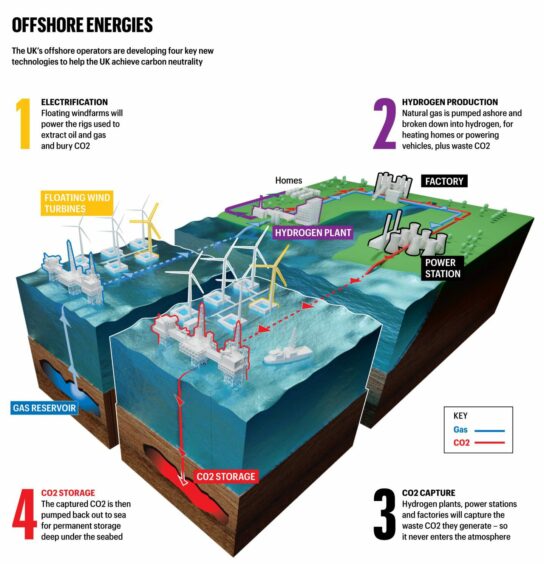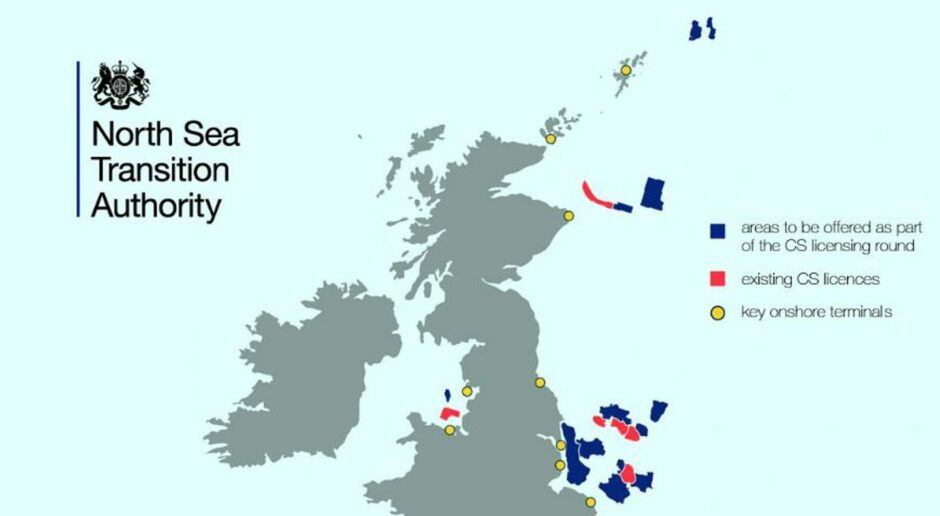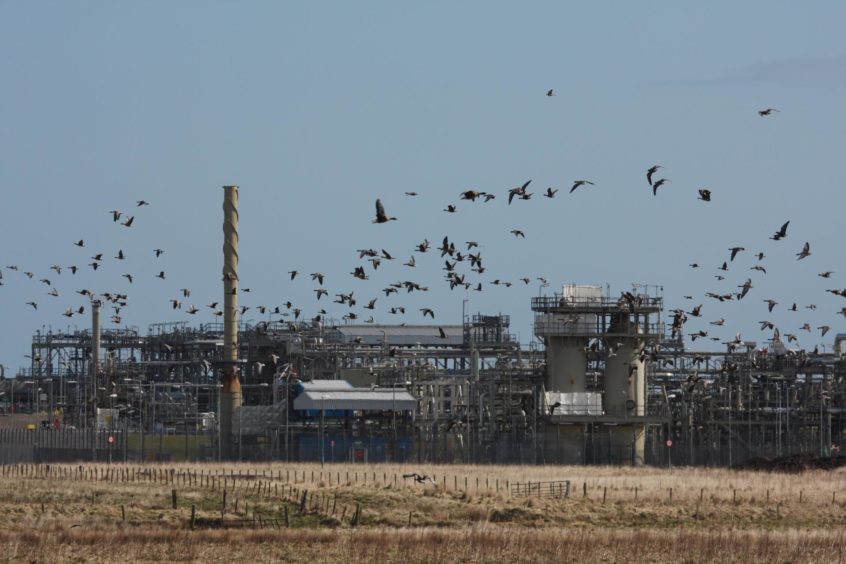
Carbon capture and storage (CCS) could create and underpin thousands of green jobs in the north and north-east of Scotland in the coming years.
A new report published by Offshore Energies UK (OEUK) has named Aberdeen, Peterhead, Inverness and Shetland as focal points for the burgeoning £100 billion industry.
But that is only if government takes “urgent action” to support the development of CCS projects and the companies that will deliver them, the trade body warned.
OEUK found that Scotland’s offshore engineering and other supply chain firms are in prime position to reap the benefits of the growing industry.
Such companies are prominent in regions with strong oil and gas links, like Aberdeen, making them “ideally placed” to become hubs for the emissions busting technology.
Growing up fast
Although CCS is currently in the early stages of development, it is predicted the industry could be worth £20bn to the UK offshore supply chain in the next ten years.
That figure is expected to rise to £100bn a year by 2050, Westminster’s target date for zeroing out emissions.
CCS involves trapping carbon emissions and transporting them, either by pipeline of shipping, for permanent storage in geological formations.

It is regarded as crucial for decarbonising hard to abate, energy intensive sectors, including cement and heavy industry.
Despite a general acceptance that CCS has a role to play in the transition, there is still a degree of scepticism towards it, partly due to teething problems with the technology in other parts of the world.
Workers needed to deliver goals
Nevertheless, the government’s net zero strategy says the UK will need to capture 50 million tonnes of carbon a year by 2035.
To support that aim, thousands of jobs could be created in traditional oil and gas hotspots, focused on the likes of Aberdeen, Inverness and Peterhead, the report claims.
Katy Heidenreich, OEUK’s supply chain and operations director, said: “Carbon capture and storage is going to be a key tool in our fight against climate change. It offers a huge opportunity for the UK supply chain to help energy intensive industries cut emissions.
“If we get this right, it could unlock £100 billion-worth of work for UK manufacturing employers by 2050. This will support UK jobs, cut emissions, boost the economy, and develop skills which can be exported globally.”
Carbon storage licensing round
Industry regulator the North Sea Transition Authority recently launched the UK’s first-ever carbon storage licensing round.
A total of 13 areas that can securely house emissions are being offered, including several near the north-east and Shetland.
The UK has an estimated total storage capacity of 78 gigatons, enough to hold two centuries’ worth of domestic emissions, based on current level.
Developing CCS is a key facet of the North Sea Transition Deal (NSTD), a pact signed between industry and government in 2021.
As part of the commitment to delivering net zero, Westminster subsequently announced the two industrial clusters that would be the first to be up and running.
It was confirmed in October that HyNet and the East Coast cluster, based in the north-west and north-east of England respectively, were given the nod by ministers.
Meanwhile the Scottish Cluster, which includes the Acorn CCS project at St Fergus, near Peterhead, was picked as the reserve cluster.
It was a decision that sparked fury from many north of the border, and clarification from government on how the scheme can progress is still to be issued.
Govt and industry need to go further, faster
The OEUK report, commissioned by the Department for Business, Energy and Industrial Strategy (BEIS), warns that the UK’s first mover advantage in CCS could slip away.
That is unless industry and government get a move on with delivering the technology.
It flags 13 actions through which both parties can help the sector grow, including early-stage public funding and the awarding of more storage licenses.
The study also calls for greater collaboration between companies on fabrication, storage and transport facilities.
If the UK gets CCS right however, it could become a centre for disposing of carbon from many other countries.
In that event ports, including Peterhead, would become hubs for handling emissions from overseas.
Ms Heidenreich added: “North-east Scotland and Shetland are among the best-placed regions to take advantage of and benefit from these exciting new technologies.
“Lots of progress has been made, but without urgent action the UK will miss out on the opportunity to secure a leadership position in this exciting new sector.
“Our report sets out how we will continue to work with government to seize a first mover advantage, benefitting the economy, jobs and local communities while achieving our net zero goals.”
Political reaction
Banff and Buchan MP David Duguid said: “I welcome this report from OEUK which again emphasises the vital role CCUS has in our journey to net zero.
“The Acorn Carbon Capture Storage and Hydrogen Project at St Fergus is still very much moving forward and will have a key role in our fight against climate change while creating jobs and enhancing the north-east economy.
“As the reserve cluster for Track-1, Acorn continues to be engaged for development and planning, business model development and alignment with CO2 emitters in Scotland and across the UK and this must continue.
“This is why I’m continuing to meet with the developers and UK Government ministers to ensure this project progresses as quickly as possible.”
Gillian Martin, SNP MSP for Aberdeenshire East, said: “This is a very welcome report and shows the clear potential for CCS right across the UK.
“CCS is going to be a key tool in our fight against climate change and offers a huge opportunity for the
“As the representative of a north-east constituency, which has been at the forefront of energy in the UK for more than 50 years, we do not have time to delay or halt the deployment of the Scottish Cluster.
“The future of the Acorn Project is not just a north-east issue – it is one for families right across Scotland who are reliant on oil and gas and their supply chains for their incomes, either directly or indirectly.
“We have possibly the most concentrated transferrable skills base on our doorstep as well as the universities to enable the innovation that will surround the project.
“The Acorn Project will support thousands of jobs and investment in the north-east and the longer-term expansion of the cluster would unlock further economic benefits with safeguarding of industrial jobs in sites across the UK.”
Recommended for you


 © Courtesy Oil and Gas UK
© Courtesy Oil and Gas UK © Supplied by NSTA
© Supplied by NSTA © Shutterstock / Ewan Chesser
© Shutterstock / Ewan Chesser © SYSTEM
© SYSTEM